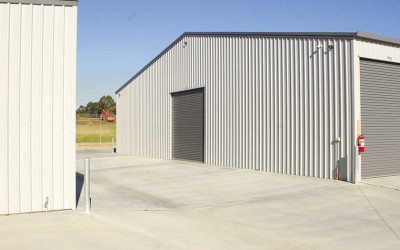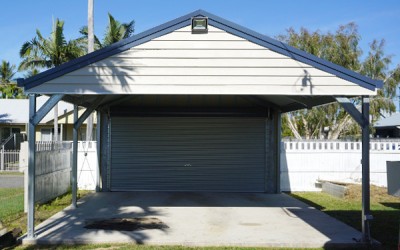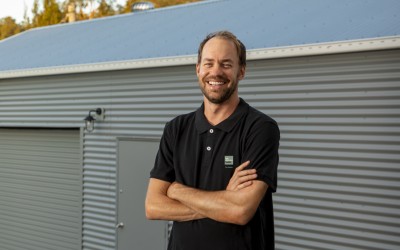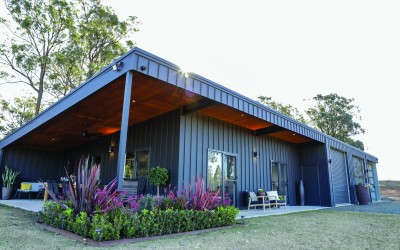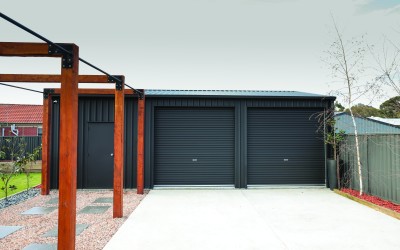
The great Aussie shed can be as unique as our DNA – a personal space used for so many different reasons.
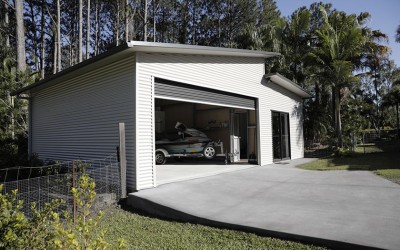
Increase the usability of your home and create a secure garage – either just for functional use, or to add an extra design feature to your home’s façade.
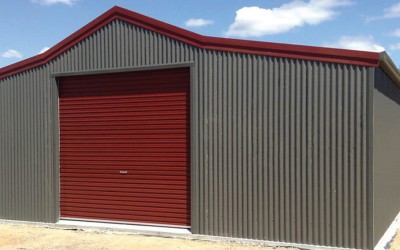
The Aussie barn – with its striking roofline – is the go-to for customers looking for the centre roof height of a barn, but without the drop of an American barn.
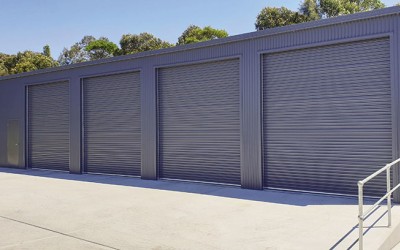
Whether you’re a self-storage facility, builder, owner, investor or buyer, we know self-storage.
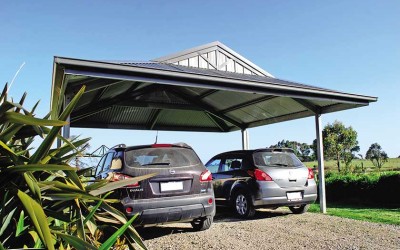
The carport is more than just a protected spot to park your car, it’s an Aussie icon.
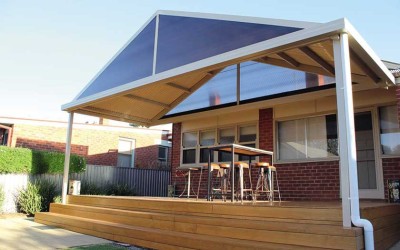
The great entertainer – the Aussie patio. It’s not just a patio – it’s where you create memories to last a lifetime.
Hit enter to search or ESC to close
Do You Need Council Approval for a Carport in TAS?
26 March 2025
Having a covered space to protect your vehicle from rain, hail, and harsh sun is always a good idea, especially in Tasmania, where the weather is so unpredictable. But, while you might think it's possible to add a carport to your property and call it a day, your local council will have different ideas, and even though you're building on your own land, you might still need to seek council approval if you want a carport.
But when exactly does council approval apply to your project? And are there any exceptions? This can be a tricky thing to try and navigate, so to make things much easier to understand, we've laid everything out in a super-simple way below. Here, you'll find all the information you need on carport council approval in Tasmania, how to apply for it, and more.
When Is Council Approval Required?
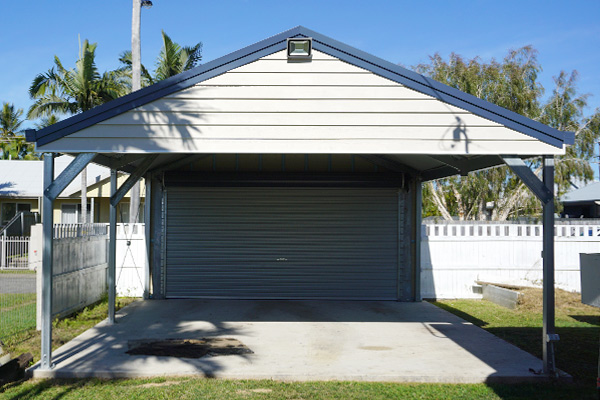
There is a one-size-fits-all answer when it comes to figuring out whether or not you need council approval to build a carport in Tasmania, and instead, there are several factors that will determine the decision. These are outlined in the National Construction Code and in the Tasmanian Government's Building Act 2016 Fact Sheet, but to make things a bit clearer, you'll likely need council approval if your carport:
-
Exceeds the low risk work size limits of over 18m² for a non prefabricated structure or 36m² for a prefabricated shed.
-
Is attached to a primary and secondary dwelling, garage, or other residential buildings.
-
Is within 900mm to 1.5 metres of a boundary line, especially the secondary street boundary.
-
Is located in a bushfire prone area.
-
Is constructed on land subject to heritage or environmental overlays.
-
Affects front walls, fences, or impacts neighbouring properties.
-
Is built in a unit complex that requires body corporate approval.
Put simply, if your carport falls into any of these categories, you will need to submit an application to your local council for a building permit or planning permit before starting construction.
When Is Council Approval Not Required?
The good news is that there is a way around this, and not every carport will require council approval to build. In these cases, the construction can be considered "low risk work", and this can be completed without formal council approval provided it meets the criteria set by the Building Act 2016 and local building regulations. This includes:
-
Prefabricated carports under 36m² (provided they meet local council setback requirements).
-
Non-prefabricated carports under 18m² (provided they are not attached to another structure).
-
Structures that do not require excavation or significant building work affecting the land.
It is important to note, however, that even if your carport qualifies as low risk work, you may still be required to notify your council and submit a Form 80 - Notification of Low Risk Work to confirm that your building project complies with rules and regulations.
How to Apply for Carport Council Approval in Tasmania
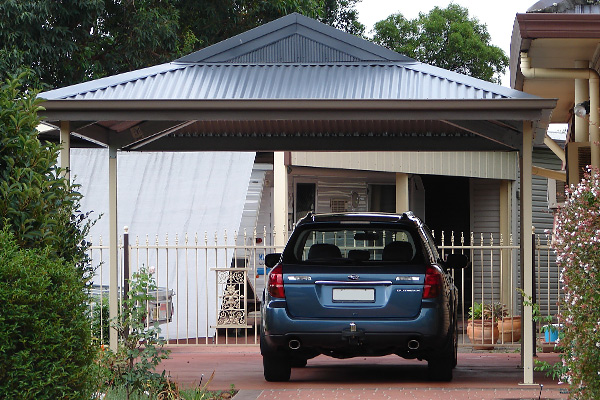
If your proposed carport build doesn't fall into that list of exemptions, you're going to need council approval. The application process for this can feel pretty complicated if you've never done it before (and if you're really not confident, Fair Dinkum Builds can handle it on your behalf), but to make things clearer, here's a step-by-step guide:
Step 1: Prepare Your Documents
There are several documents you'll be asked to provide alongside your application form, and the first step is making sure you've got each of them in place. This will likely include your site plan, building plans, and a bushfire hazard report (if you live in a bushfire-prone area).
Step 2: Submit Your Application
Once you're confident your documents are ready, you can submit your application to your local council. Some councils will ask you to do this through PlanBuild Tasmania, while others will require the application to be submitted directly through their own websites. You'll also have to pay the associated fees at this stage, the costs of which will be made aware to you before you start your application.
Step 3: Assessment and Approval
You've now got to play the waiting game as your local council takes the time to assess your application. The process can take up to 8 weeks, with more complex projects taking longer to approve and, if needed, you may also be asked to provide additional documents or to make amends to your plan to fit with the specific regulations laid out by your local authority.
Step 4: Construction and Final Inspections
If everything is approved, you can begin construction! It's very important that you follow the approved plans to the letter, as any modifications will only result in you have to go through the process again after the final inspection has taken place. Assuming the build has follow the plans exactly, you'll be given a Certificate of Completion, which is your legal documented proving the carport has been approved and is fully compliant.
What Happens if You Build Without Approval?
If you build without council approval, or your building work does not comply with local council regulations, you could be fined, forced to demolish the structure, or required to undertake costly modifications to bring it up to standard. Local councils conduct inspections, and unapproved construction can be reported by neighbours or discovered during routine compliance checks.
An unapproved carport can also cause big problems when selling your property, as prospective buyers, real estate agents, and mortgage lenders often request records of building permits, and missing approvals can delay or even cancel a sale. Insurance companies can also refuse to cover damages related to an unapproved carport, leaving you financially exposed in the event of storms, accidents, or structural failures.
With all of this in mind, it's always worth checking if you need council approval for a carport and, if you do, following the correct process to get it.
Build the carport of your dreams with Fair Dinkum Builds
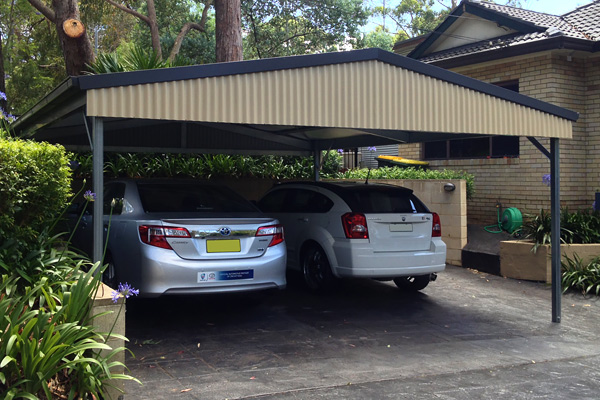
Navigating carport council approval might seem daunting, but taking the time to secure the proper permits will help avoid legal issues later on. Fair Dinkum Builds can handle all of the paperwork for you, too, making planning even easier and letting you focus on the more exciting elements of the process. Get started with a custom built carport today!
Got a specific design in mind? Try our Shed Designer App today, which lets you create and adjust your dream carport, and when you're ready, get in touch to get the ball rolling.


